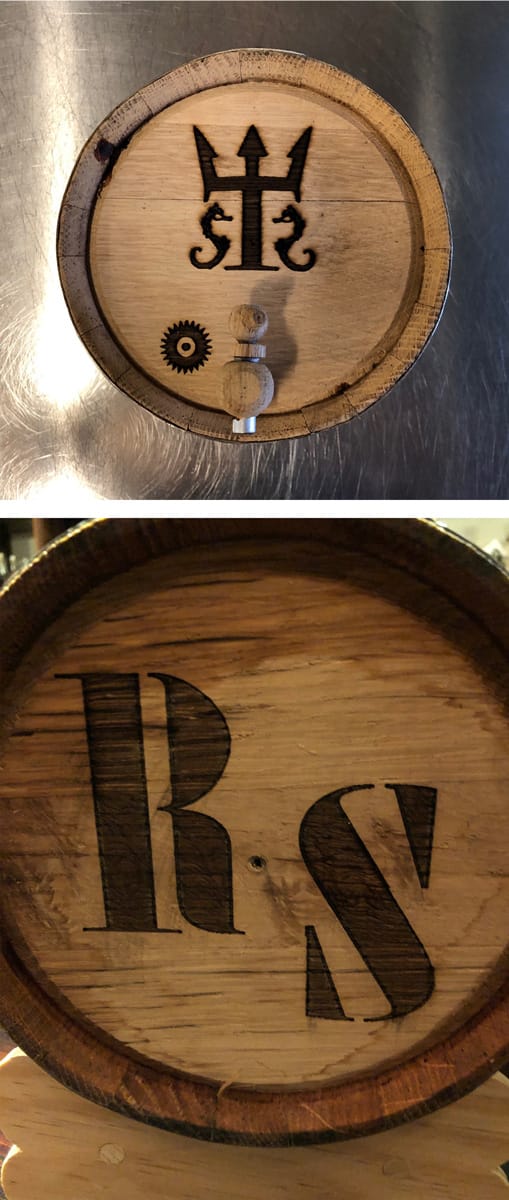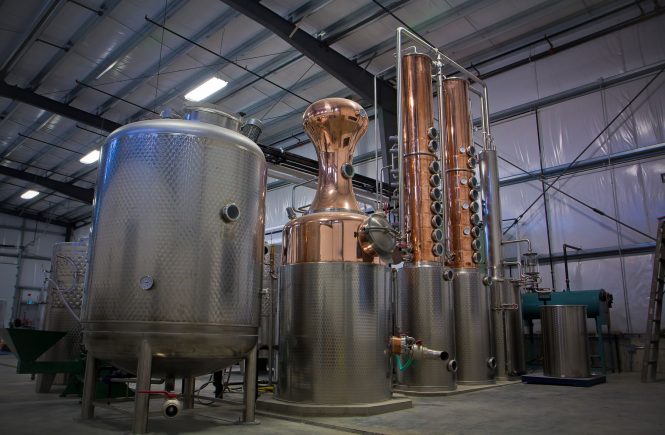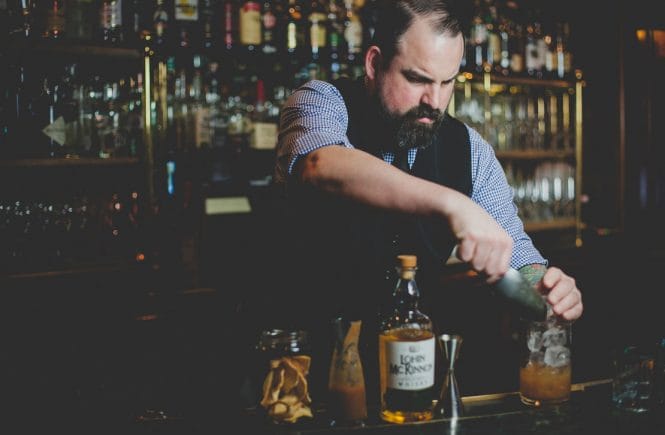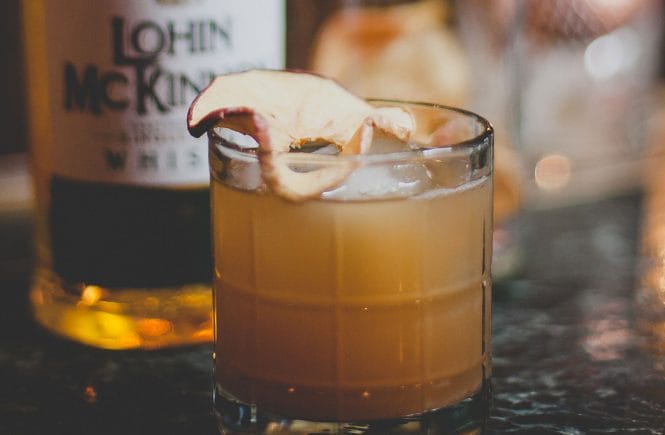Private-cask whisky sales are a “futures” investment in B.C.’s small-batch distillers. Here’s how and why they do it.

They’re lined up like Papa, Mama and Baby Rye: 20-, 10- and five-litre mini-barrels, their ends embossed with the names of proud owners who, in eight weeks or so, get a crash course in craft spirits aging—and their own one-of-a-kind bottles of Custom Rye.
“We were kind of inspired by beer growlers,” says Brian Grant. He and Resurrection Spirits partner David Wolowidnyk charge customers once for the barrel ($150 to $350 depending on size), which they can pay the distillery to fill with white rye (or even gin) multiple times, at the bargain price of $37.50 a bottle. Vancouver’s Homer Street Grill and Unwind are among bar clients already serving their own private batches.
When B.C. distilleries sell private casks, they’re generating investment in their futures and developing a brigade of civilian brand ambassadors.

When B.C. distilleries sell private casks, they’re generating investment in their futures and developing a brigade of civilian brand ambassadors. Customers get a glimpse of distillery life, while the pesky details (like insurance, bonding, excise, tax and bottling) are handled by the distillery during the minimum three-year period that a Canadian whisky must age there.
The owners’ perks include the bragging rights of a labelled cask on display and tasting visits at the distillery. Kelowna’s Urban Spirits even throws in a bottle of whisky and a drinking jacket.
Some distilleries use private casks to grow their whisky libraries. Preferring the aging properties of full-size casks (10 options, from standard-size American oak to massive Madeira or Port vessels), Victoria Caledonian sells 30-litre portions to customers who consult with whisky ambassador Andrew Campbell Walls to customize their batch. The distillery is “so confident in the quality of your final product,” they pledge to use the balance of each barrel in their tasting room or special releases. Owners can even arrange to swap bottles at annual parties.
The Okanagan’s Dubh Glas Distillery offers two “cask futures” options: casks can be partially sold to private owners, with the balance of liquid assets used by the distillery. Investment-minded customers can put their custom bottles up for sale and enjoy a share of profits. “It’s a win-win scenario,” says distiller Grant Stevely, whose annual insider offering has grown into a year-round program. Like Stillhead Distillery in Duncan (which will age 30 litres of your own corn, rye or malt whisky for three years), Dubh Glas also sells miniature barrels and bottles of new-make spirit for a micro experiment in home aging.
From my experience, small barrels can be remarkable, but you have to learn to work with them.
Since 2014, Vancouver’s Odd Society Spirits has found that an annual private-cask sale helps “weather the lean, dry months of January and February,” says distiller Gordon Glanz, whose 2019 offering featured four-year aging in 113-litre barrels, of which clients can buy a quarter-share. “We learned a lot about barrels,” Glanz adds. As in: They sometimes leak and allow more “angel’s share” evaporation than originally thought. “From my experience, small barrels can be remarkable, but you have to learn to work with them.”
The program has fostered bonds between Odd Society and its community, says general manager Miriam Karp. Owners “feel a connection to the distillery and are very supportive.” Among the 100 or so casks they’ve sold, at least nine of them involved Bill Macaulay, a Vancouver accountant who calls his single-cask experiments “kind of a combination personal interest and business networking play,” since he organizes regular group dinners and tastings for his crew of co-investor colleagues and friends. Already the proud owner of three- and four-year-old single-cask bottlings, he’s even thinking about making a personal blend. “The goal was not just to buy cheap whisky, at least from my point of view,” says Macaulay.
Yet at prices that work out to around $50 per 750-millilitre bottle (depending on yield, bottling strength and fees), investing in a single cask is a relative bargain for unique whisky that throws some serious market confidence behind B.C.’s artisan distilling industry.
—by Charlene Rooke




